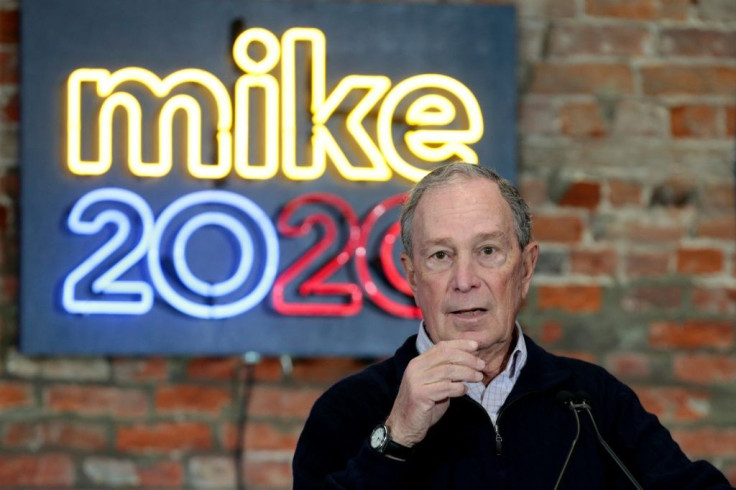How Would Democratic Presidential Candidate Michael Bloomberg Tackle The Student Loan Crisis?

KEY POINTS
- Democratic presidential candidate Michael Bloomberg unveiled his higher education plan on Tuesday, calling for two-year community colleges to be tuition-free
- The plan also increases Pell Grants for low-income students and reduces the cap on income-based payment from 10% to 5% of monthly discretionary income
- The plan is more moderate than those of progressive rivals Massachusetts Sen. Elizabeth Warren and Vermont Sen. Bernie Sanders, who have called for student loans to be forgiven and public universities to be tuition-free
Former New York City Mayor and Democratic presidential candidate Michael Bloomberg on Tuesday suggested eliminating tuition at community colleges for all students regardless of income as prt of his higher education plan.
“Mike’s plan ensures cost is not a barrier to a quality post-secondary education. It provides students with credentials to equip them for middle-income jobs, gives talented low-income students the opportunities they deserve, and reforms the student loan system so no one pays more than they can afford,” Bloomberg’s website says.
The plan would doubles to $12,690 the maximum Pell Grant, which is aimed at students with financial need. The plan also allows formerly incarcerated and undocumented students to participate in the program.
Bloomberg’s plan does not support complete student loan forgiveness for all Americans, but would eliminate student debt for individuals who attended “failed or for-profit colleges.” It would allow students to enroll in an income-based repayment plan, which caps monthly payments at 5% of discretionary income, down from the current 10% cap. This new income-based repayment plan would only be available for undergraduate federal loans.
After 20 years of paying off federal student loans, borrowers will be eligible to have up to $57,000 of their loan balances forgiven.
The Bloomberg campaign said the program would cost $700 billion over the next 10 years, and would be paid for by tax increases on the wealthy.
Bloomberg called for more moderate reforms than his progressive rivals, Vermont Sen. Bernie Sanders and Massachusetts Sen. Elizabeth Warren, who have proposed eliminating the majority of student debt in the country, and making colleges tuition-free.
Democratic candidates hope to attract voters who feel the Trump administration is not doing enough to tackle the U.S. student loan crisis. Some 44.2 million Americans currently hold an estimated $1.48 trillion in student loan debt.
Education Secretar, Betsy DeVos frequently is criticized by Democrats for not doing enough to protect students from fraudulent, for-profit colleges. President Trump’s 2021 budget proposal also eliminates several student loan repayment options, such as the public service loan forgiveness program.
© Copyright IBTimes 2024. All rights reserved.





















